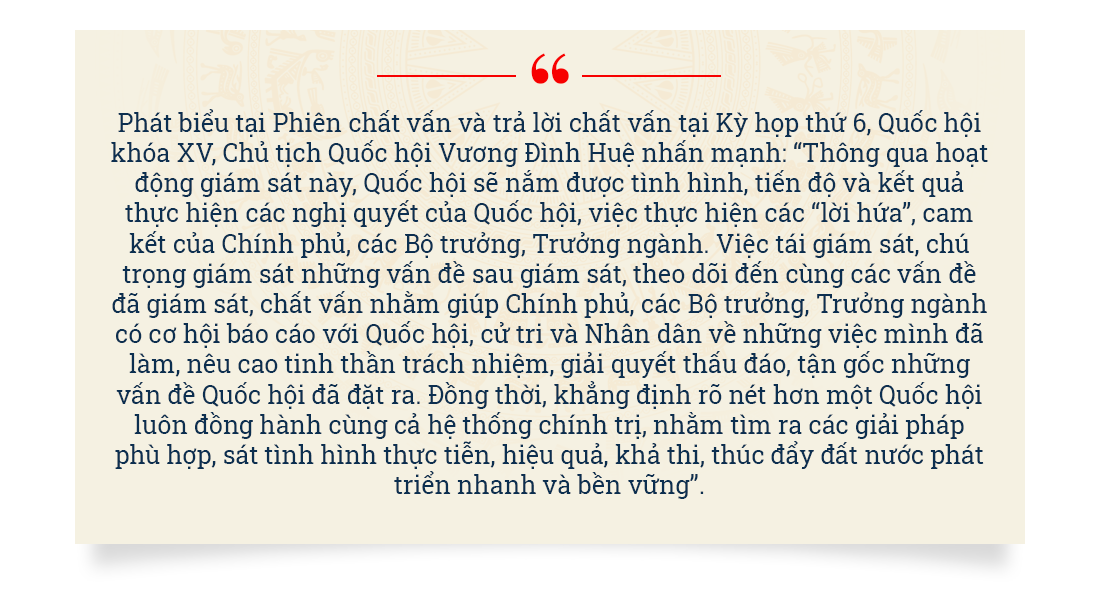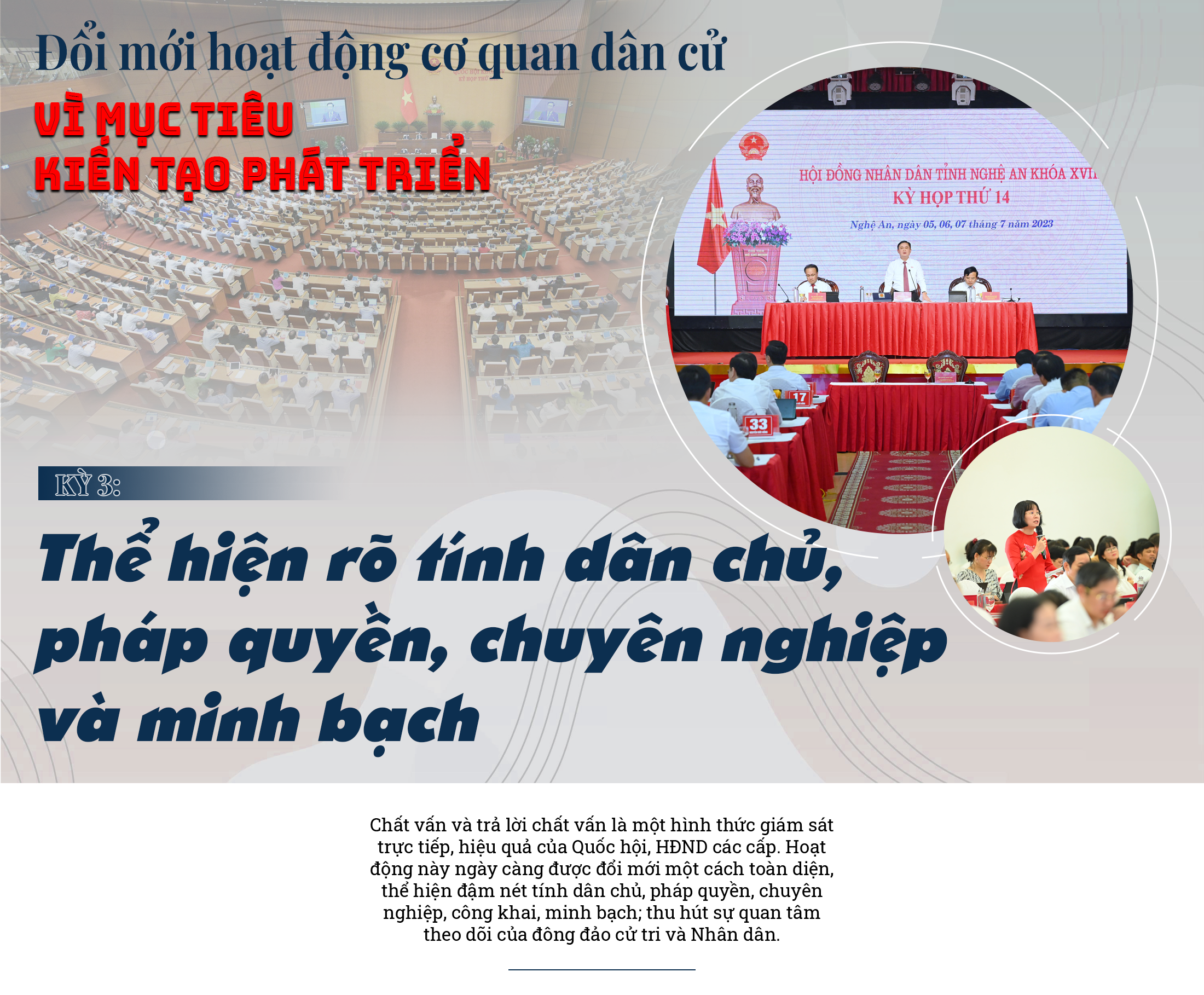

From a case of a high school student in Vinh City committing suicide because of suspected isolation and mental violence by friends, and a few clips of students fighting spread on social networks, it has caused confusion and anxiety for parents. Faced with this situation, the 14th Session (July 2023), the People's Council of Nghe An province, term XVIII, 2021-2026, chose the issue of school violence as one of the contents to conduct questioning at the session. This issue "heated up" the questioning session with a series of questions and the reality raised by the delegates: "Current violence is not only fighting, cursing, attacking or also known as "hot violence" but also "white violence" with acts of boycotting and causing pressure in real environments and even in cyberspace. What solutions are needed to prevent this problem?".
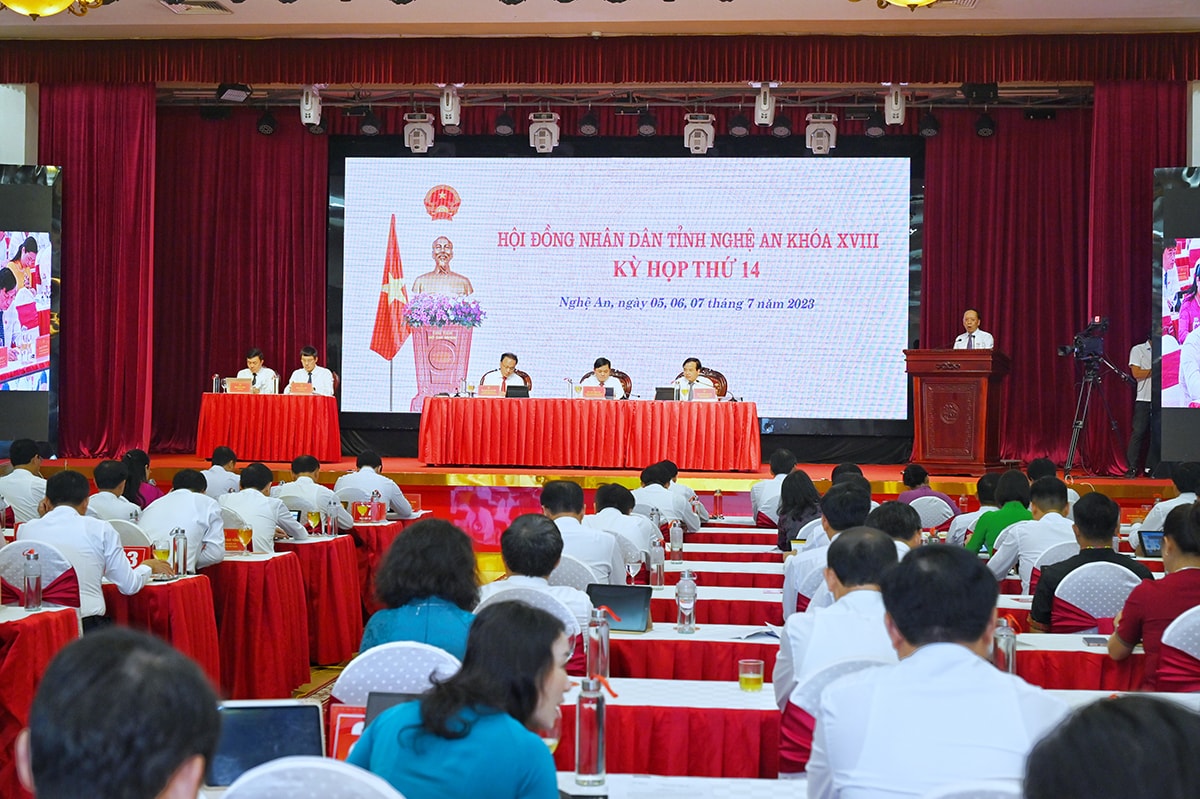
School violence affects not only the body but also the soul, morality, personality, lifestyle, security and safety in schools, creating an insecure atmosphere for students' families, parents and society. "Now there is a situation where students are not afraid of or do not trust teachers in class. On the street, old people are afraid of children. At home, parents flatter their children. What solutions are needed to eliminate this phenomenon?", the provincial People's Council delegate proposed...
Responding to questions, Prof. Dr. Thai Van Thanh - Director of Nghe An Department of Education and Training emphasized that the main prevention solution is to pay attention to education and equip students with life skills, including skills to handle situations; skills to manage one's emotions; skills to defend oneself against impacts that can cause violence to students...
The head of the Nghe An Education sector also admitted that the activities of school counseling groups are facing many difficulties when there is no specialized team to do this task, but instead the homeroom teacher, secretary or deputy secretary of the youth union, and vice principal of the school concurrently hold the position. In the condition of both performing professional activities and taking on additional school psychology tasks, the number of students in each school is large, with some schools having 1,500 - 2,000 students; so it has not met the expectations of schools, parents and students.
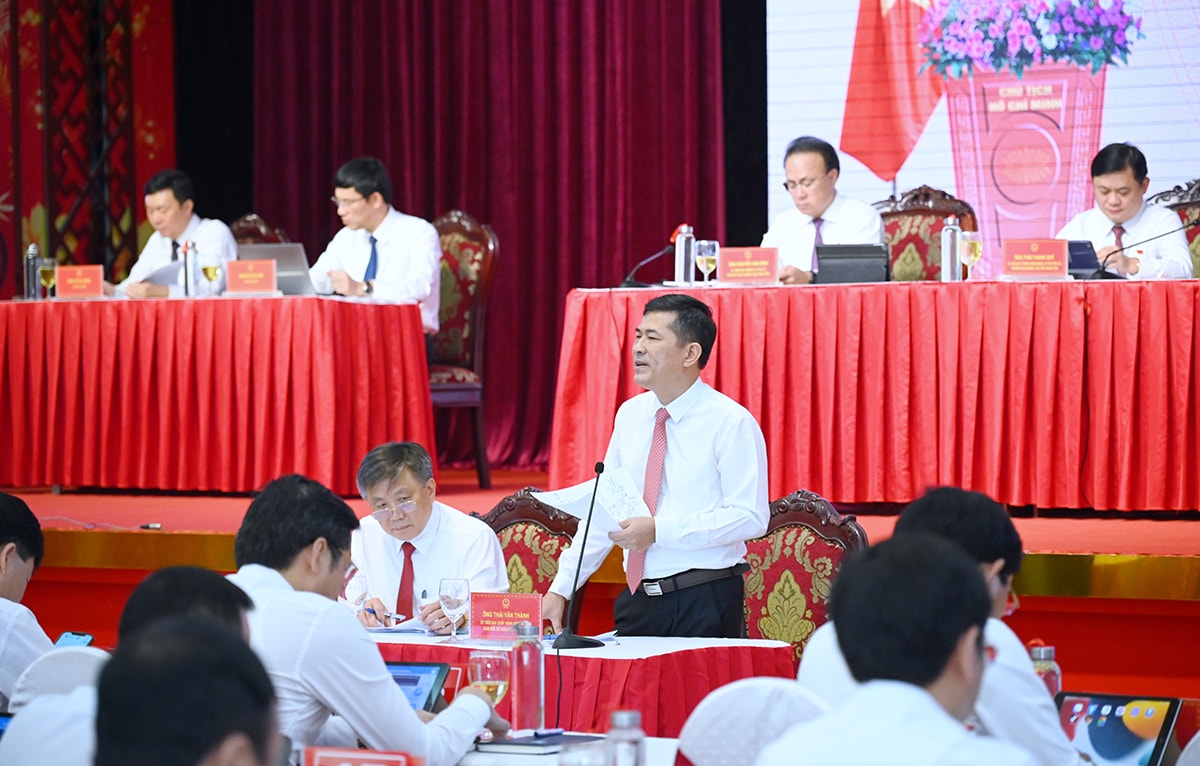
The Director of the Department of Education and Training of Nghe An affirmed that he will direct schools to strengthen coordination and connection with doctors and psychologists to join the school in this activity, because if only homeroom teachers and some other departments in the school do not have experience and specialized expertise in counseling, it will not be effective, especially when students have psychological crises that exceed the knowledge of teachers.
Also at this session, an issue of great concern to voters was also included in the questioning content, which is the output for OCOP products. Because Nghe An currently has more than 400 OCOP products ranked at 3 stars or higher, ranking second in the country in terms of quantity, only after Hanoi. However, the output of OCOP products is not stable, bringing low economic value, and not uniform among localities.
Responding to questions, Mr. Phung Thanh Vinh - Director of Nghe An Department of Agriculture and Rural Development admitted that the problem of unstable output comes from the limitation that the locality is still confused in choosing the main OCOP products of the district and commune to develop, improve brand, quality, and connect with the market. From there, the leader of the Department of Agriculture and Rural Development committed that in the coming time, OCOP products must definitely follow the direction of brand, quality and must join together to develop products. Even the subject of OCOP products must take care of their products, need to manage quality, "there is no fast, much, good and cheap".
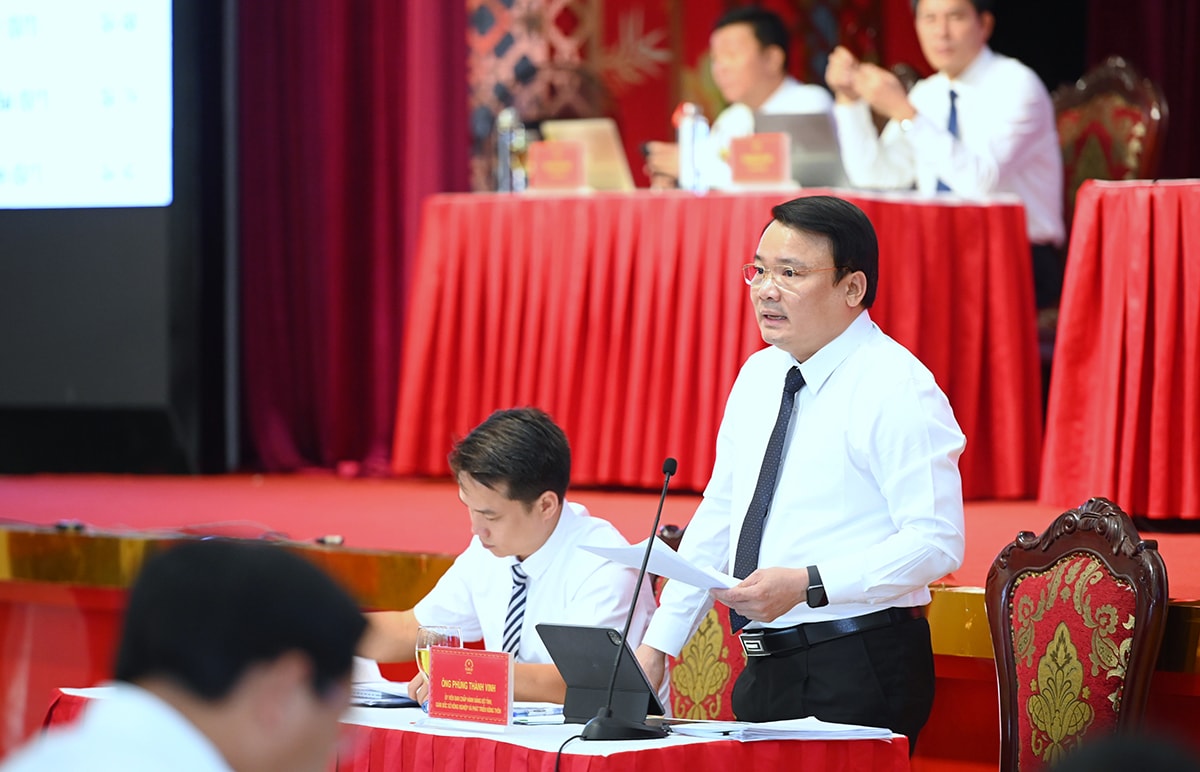

It can be said that the question and answer sessions of the People's Council of Nghe An province in the 2021 - 2026 term have been innovated in terms of implementation methods and content. The content of the questions is carefully selected based on the proposals of the delegates and the Provincial People's Council delegations on groups of issues that voters, public opinion and the people are interested in. On that basis, based on the situation and plan to implement the tasks of the province, the Standing Committee of the Provincial People's Council will select groups of content to conduct question and answer sessions at 2 regular sessions of the Provincial People's Council (in the middle of the year and at the end of the year), in order to clarify the results achieved in the past time; point out the shortcomings, limitations and difficulties in organizing the implementation of regulations, mechanisms and policies; responsibilities of relevant agencies and units; propose solutions to overcome existing problems and remove obstacles.
In order for the question and answer sessions to be most effective, the Standing Committee of the Nghe An Provincial People's Council requires the questioners and the questioners to strictly follow the rules of the question and answer sessions: Questions and answers must be concise (no more than 1 minute for each question and 5 minutes for each answer), clear, focused, and closely follow the group of issues; especially, increase debate to clarify the issues; frankly point out limitations and weaknesses, request clarification of responsibilities, as well as propose solutions and plans to overcome them; thereby, there are also suggestions and additional solutions to strengthen State management in the areas being questioned.
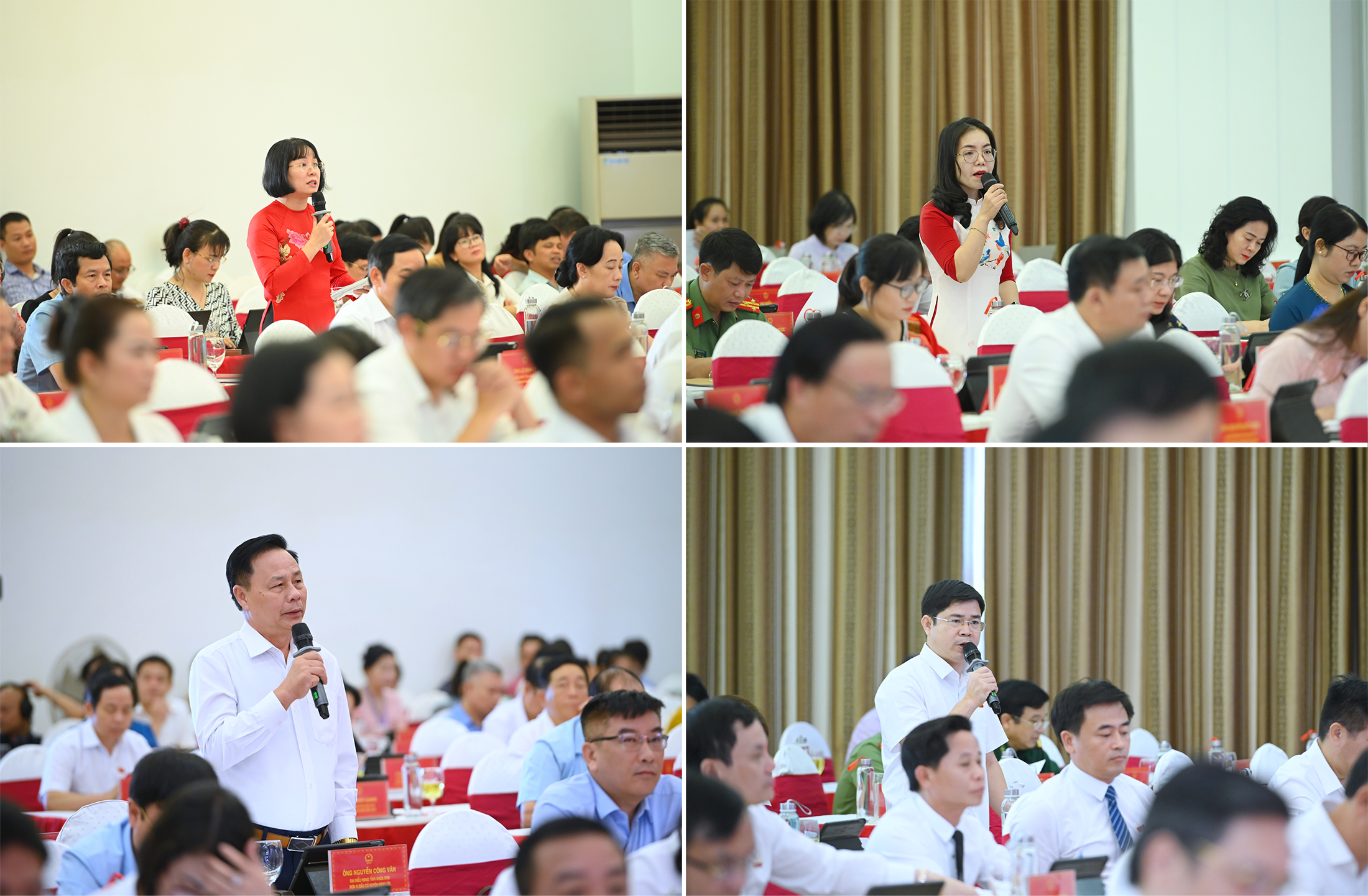
In order to bring the activities of the Provincial People's Council closer to voters, the question and answer sessions are reported in the form of reports on the electronic newspaper and social networking platforms of Nghe An Newspaper; and live on the provincial Radio and Television.
Always paying close attention to the Provincial People's Council's question and answer sessions, voter Bui Cong Minh (Le Mao ward, Vinh city) assessed that the content of the question and answer sessions was selected appropriately and close to reality; the way of conducting the questions was scientific, the questioners and the questioners were frank. That demonstrates the responsibility of the Provincial People's Council in monitoring and supervising to the end from specific issues that voters and people are interested in to important issues of the province.


Following the question-and-answer session of the 6th Session of the 15th National Assembly, which was broadcast live on VTV1, National Assembly Television, Voice of Vietnam and other mass media, Nghe An voters were very excited when Prime Minister Pham Minh Chinh answered questions and affirmed: Salary is an issue that the Party and State always care about. Currently, the Government has tried to set aside salary, increase revenue, reduce expenditure, save and currently has about 560,000 billion VND to spend on salary reform from July 1, 2023 to the end of 2026. Salaries in the State and non-State sectors will be reformed to be closer to each other in the spirit of Resolution 27 of the 12th Central Executive Committee.
Voter Hoang Thi Lan (teacher of Vinh City) expressed her excitement when the Minister of Home Affairs, during the question and answer session, said that teachers' salaries are given priority according to the highest salary scale and table in the administrative career system.
This is also the first time in the 15th tenure that the Prime Minister, all Deputy Prime Ministers and 21 Ministers and Heads of sectors have directly answered questions from National Assembly deputies. With a very wide scope, relating to 21 different fields, 10 Resolutions of the National Assembly, on the basis of arrangement into 4 groups of fields according to the initiative of the National Assembly Standing Committee.
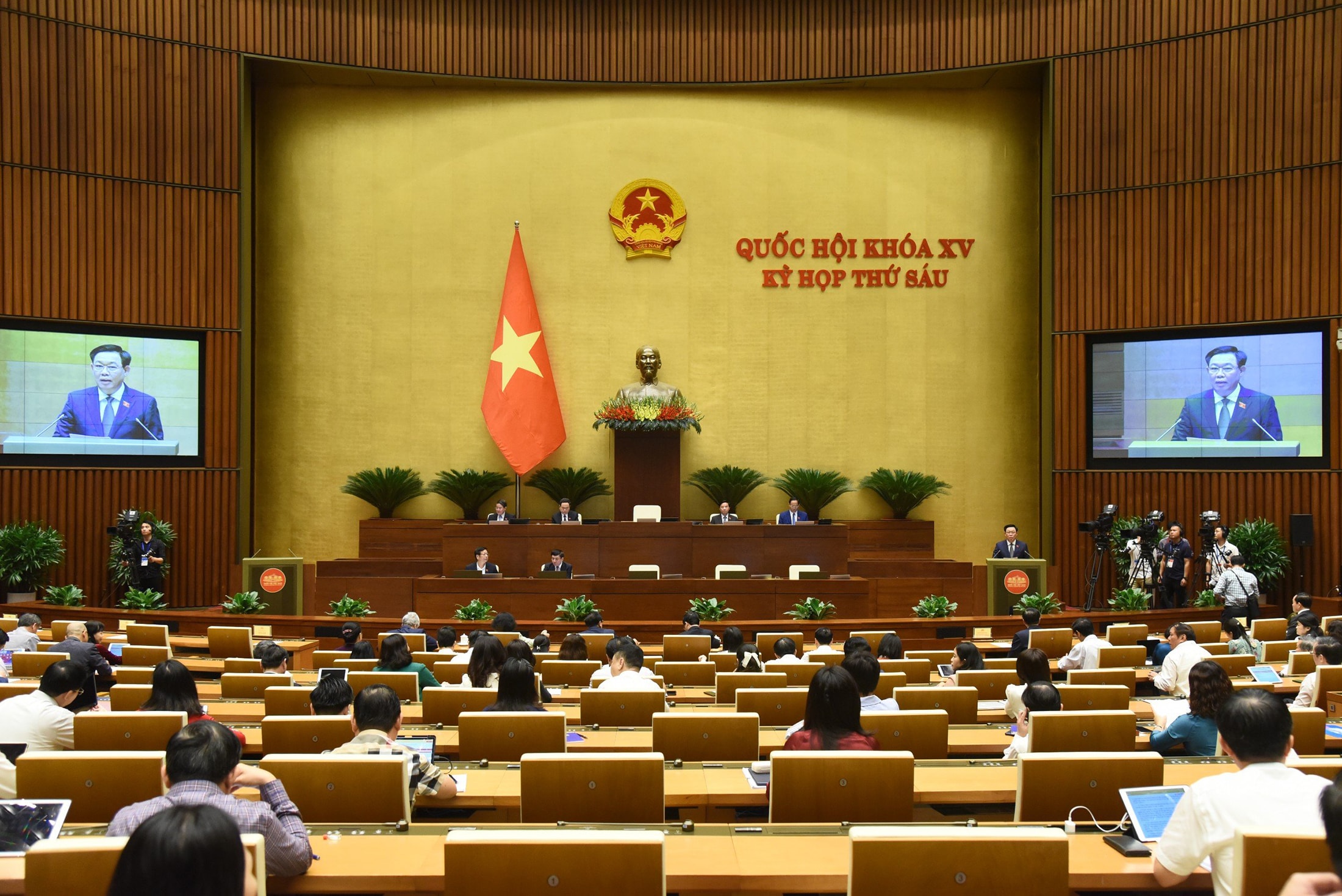

Through the question and answer sessions - this extremely important supreme supervision activity, Nghe An voters highly appreciated the spirit of innovation and high responsibility of the National Assembly deputies, who questioned the core issues that exist and are urgent in real life, creating a "substantial and highly constructive" question and answer session. Urgent issues that voters across the country are concerned about were raised by the National Assembly deputies at the question and answer session, and were clearly answered by the Prime Minister, Deputy Prime Ministers, and leaders of relevant ministries and branches.
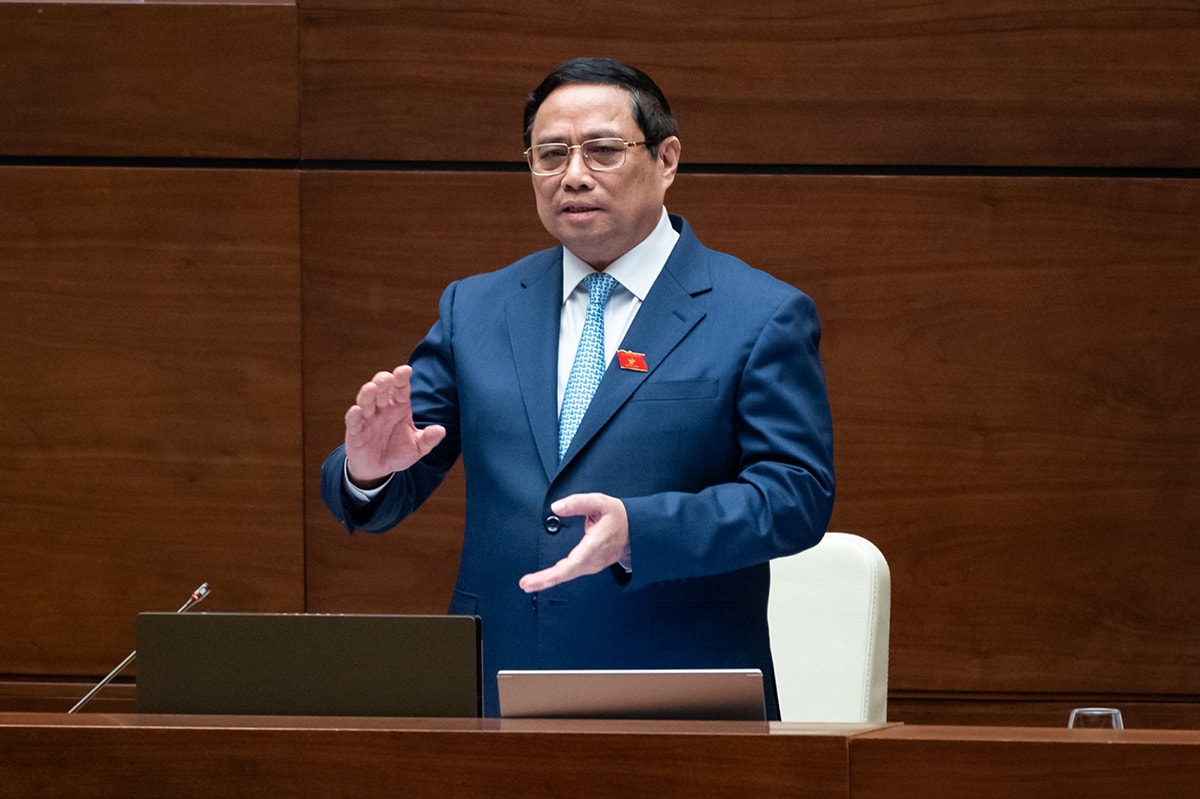
It can be said that through the questioning activities, Ministers and heads of sectors have the opportunity to transparently explain institutions and policies, more clearly identify shortcomings and limitations in the law enforcement process, and constantly improve the responsibility of leaders in overcoming limitations and shortcomings. These results continue to affirm that questioning is a particularly effective form of supervision, clearly demonstrating democracy, rule of law, professionalism, publicity, transparency and is a key and central step to improve the effectiveness and efficiency of the National Assembly's operations.
Mr. Hoang Minh Hieu - Standing Member of the National Assembly Law Committee, National Assembly Delegate of Nghe An Delegation, assessed: Since the beginning of the 15th National Assembly term, the National Assembly's supervisory activities have been innovated in many aspects, meeting the expectations of voters. In particular, the innovation is clearly demonstrated in the implementation of questioning activities in this term. In terms of institutions, the National Assembly session regulations, which have just been amended and supplemented, have specific provisions to perfect the order and procedures for conducting questioning at the National Assembly session. For example, the regulations clearly stipulate that National Assembly deputies only debate with the person being questioned, not with National Assembly deputies who have debated before. This helps the questioning activities take place more substantively, ensuring the true nature of the questioning activities.
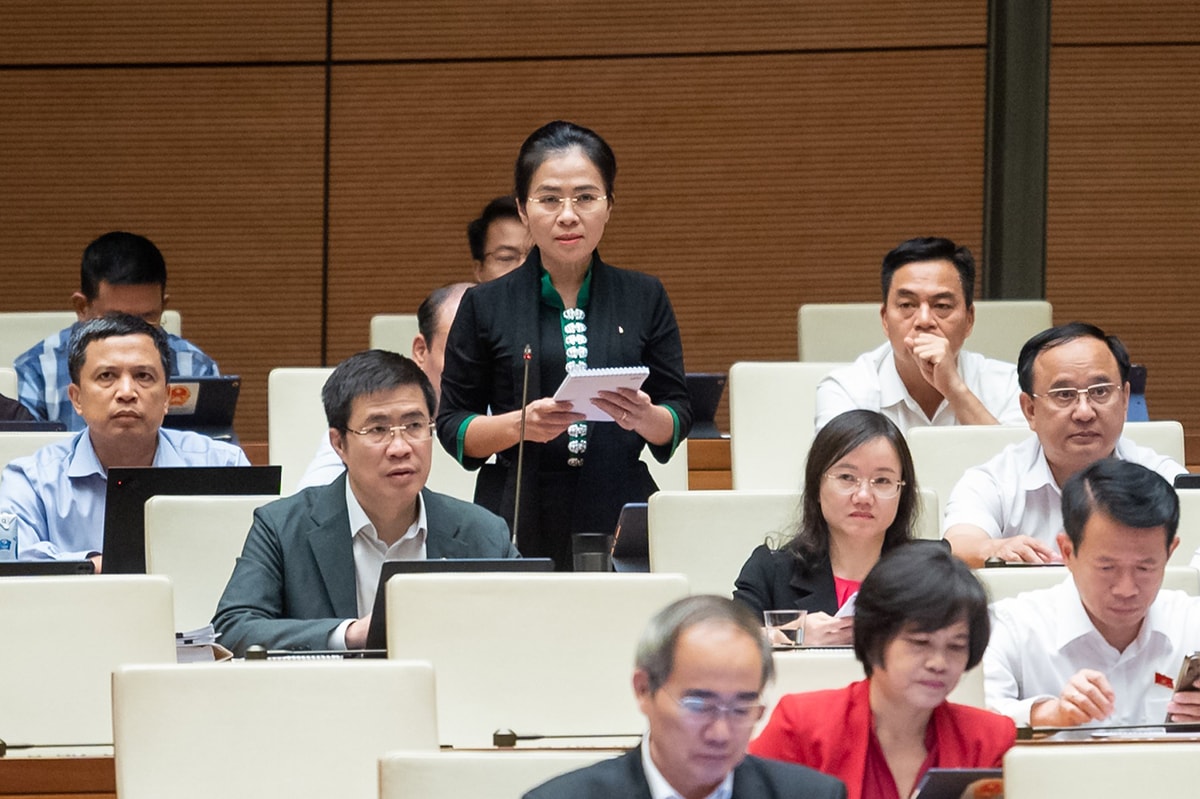
According to delegate Hoang Minh Hieu, implementing the provisions of the Law on Supervisory Activities of the National Assembly and People's Councils, the National Assembly has conducted supervision on the implementation of a number of resolutions of the 14th National Assembly and from the beginning of the 15th National Assembly's term to the end of the 4th Session on thematic supervision and questioning. This is a provision that has been implemented since the 14th National Assembly's term.
However, the way of organizing the question-and-answer session in this term has been innovative and creative, specifically, organizing the question-and-answer session in 4 different groups of content including: General economic field; Sectoral economic field; Internal affairs and justice field; Cultural and social field at the 6th Session. This helps the question-and-answer content to be more focused, creating more favorable conditions for National Assembly deputies and Ministers and Sector Heads in questioning and answering questions. Although the scope of the question-and-answer session is wide, related to 21 different fields, with a creative way of organizing, National Assembly deputies have shown a high sense of responsibility, carefully studied the reports, asked short, clear, focused questions, and went straight to the point; Government members and Sector Heads have a firm grasp of the current situation of the sector and field under their charge, and have basically answered frankly, explained seriously, clarified many issues and proposed solutions to overcome them.
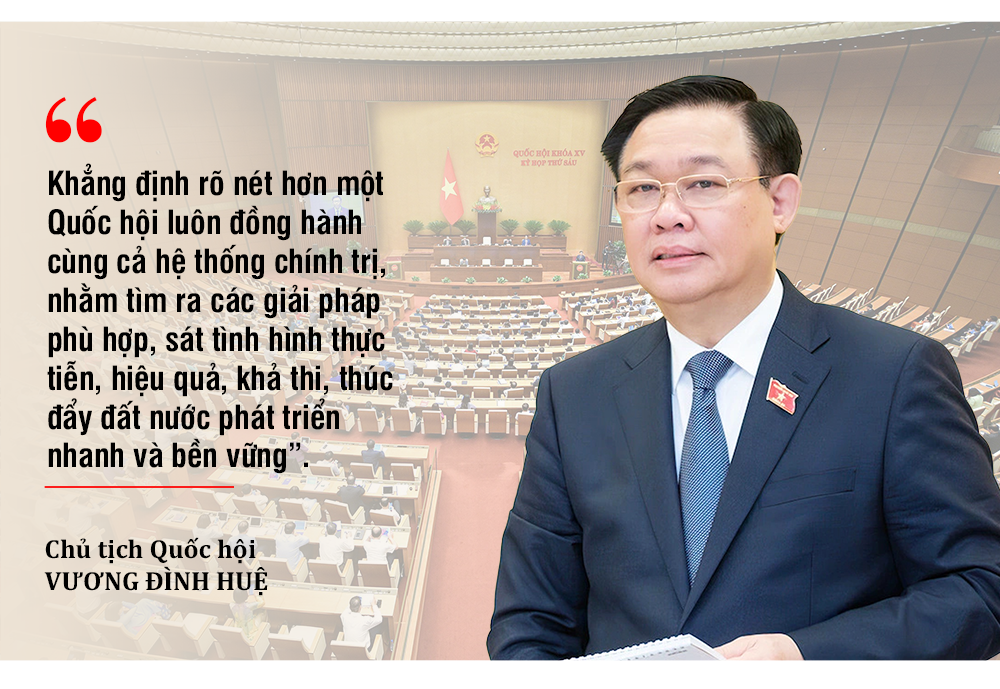
Based on the results of the questioning, the National Assembly has pointed out the tasks that have been implemented slowly, the contents and targets that have not been completed, have not met requirements, have been slow to change, have not been completely resolved or are still facing difficulties and problems, which need to be overcome, removed and resolved in the coming time. Those innovations have received the consensus, support and high consensus of the National Assembly deputies, creating a basis for continuing to study, absorb and perfect legal regulations on the National Assembly's supervisory activities.
